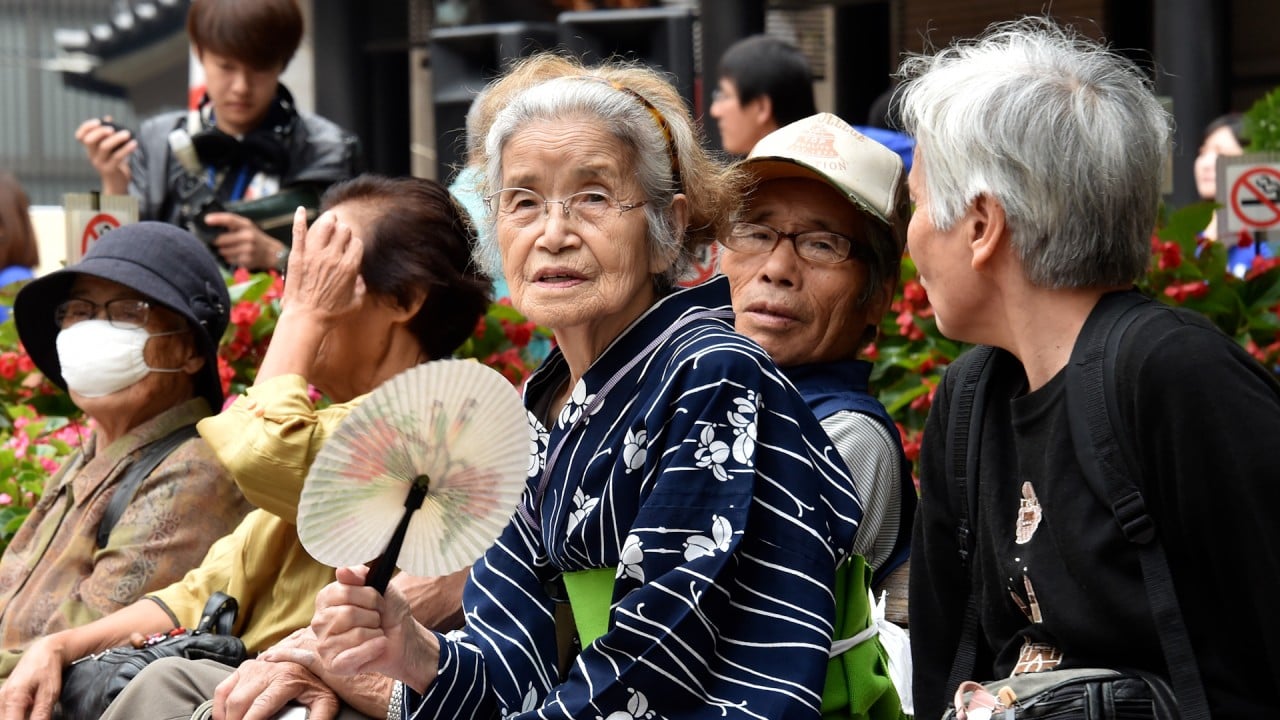
Japan grapples with high rates of ‘carer killings’ made worse by pandemic isolation
- ‘Caregiver fatigue’ may have worsened in Japan as Covid isolation compounded the desperation of untrained family members trying to provide home care
- The pandemic had stretched Japan’s healthcare system close to breaking point and there was inadequate help available for people being cared for at home
Every eight days in the decade to 2021, an average of one elderly Japanese person was killed by a member of their own family or committed suicide after killing a relative they were caring for, according to a study released this month.
The alarming statistics on what is being termed “caregiver fatigue” may have worsened in subsequent years, an academic has suggested, as enforced isolation during the coronavirus pandemic compounded the desperation of untrained family members trying to care for relatives with debilitating illnesses in their own homes.
Similarly, the study only noted fatalities brought on by the stress of looking after an ailing relative and there are likely to have been many more undocumented incidents that did not end up in a death, said Etsuko Yuhara, a professor of social welfare at Nihon Fukushi University in Aichi Prefecture and author of the research.
Yuhara used media sources to identify 443 deaths in 437 cases of murder or suicide among people aged 60 or older who required nursing care in the 10 years to 2021. Spouses accounted for 214 of the cases, and the children of elderly people carried out 206 attacks. Some 13 cases involved a sibling killing a brother or sister, seven were of a grandchild killing a grandparent, and the remaining deaths involved other family members.
“There are two major reasons for these killings and related suicides,” Yuhara told This Week in Asia. “The first is the heavy burden of caring for a family member and the other is relationships within families.”
‘It is serious’: over 1 in 4 Japanese old enough to retire as population shrinks
The numbers did not surprise Yuhara as her research revealed a high frequency of elderly people who were also primary care providers to a husband or wife, but who were isolated and became increasingly distressed as economic, physical or emotional stresses gradually took their toll.
With no hope that the future held anything better, these individuals apparently decided to kill their loved ones before taking their own lives.
“I was not so shocked at the results of the research,” Yuhara agreed. “The same reasons are still there and this is not changing over time.”
Police in Tokyo arrested a man, 86, at his home last Saturday after he called the authorities to say he had strangled his ailing wife, 81. Haruo Yoshida told police he used his hands to strangle his wife, Kyoko, as he was simply worn out from looking after her. The victim had an injury to her leg and had been unable to walk for about a year. The couple lived with their two sons, who were at work at the time of their mother’s death.
Earlier in December, another man and his wife, both 83, were found dead in the city of Suita, in Osaka Prefecture. The man had sent his daughter a message shortly before midnight to say he was going to commit suicide. When she arrived at her parents’ home, her mother was dead and her father was missing. The man’s body was found lying on the ground outside the housing block, and his shoes were discovered on the 10th floor.
There have even been cases of modern-day “ubasute”, an ancient and apparently rare practice in which elderly people were taken into the mountains and abandoned because there was not enough food for everyone in a village or the person could not be cared for.
On December 1, police in Miyagi Prefecture arrested Ichiaki Matsuda after his mother was found abandoned on a park bench. Matsuda, an unemployed 57-year-old, told police he was stressed from taking care of his mother and admitted to leaving her alone. Toki Matsuda, 86, was later pronounced dead due to prolonged exposure to the cold.
“The problem of ‘carer killings’ has been around for a while in Japan, but I do sense that it got worse during the coronavirus lockdowns,” said Yoko Tsukamoto, a professor of infection control at the Health Sciences University of Hokkaido.
“People who were probably already struggling to cope were all of a sudden completely isolated and had no one to talk to about the problems they were facing,” she said.
Japan plans to combat scams by taking elderly people’s bank cards away
The coronavirus pandemic had stretched the nation’s healthcare system close to breaking point and there was inadequate help available for people being cared for at home, while neighbourhoods that previously provided support for the vulnerable were suddenly silent, Tsukamoto said.
“I’ve heard of sons and daughters giving up their jobs to live with their elderly parents but struggling, especially when it is someone with dementia, for example,” she said. “But when the cost of inpatient care at a proper facility is so expensive, lots of families just do not have a choice.”
Yuhara believes that the government needs to do more to encourage young people to go into the care sector, which is desperately short of qualified staff in part because of low pay and the job’s undesirable status. She is calling for improved pay and conditions. If that fails to attract sufficient workers, then Japan will have to open its borders to foreign care workers.


